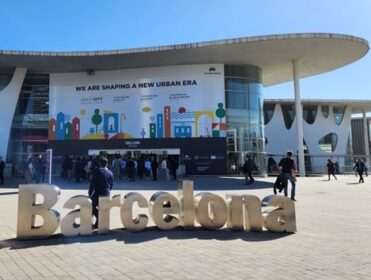
> Timeline: February 2021 – January 2024
> Keywords: age-friendly environment, urban planning, disruptive technologies, ICT, AI, digital twin.
Description
Adapting urban environments to current challenges requires a multidisciplinary understanding of interrelated and complex phenomena. In the context of the digital-era massive data production and enhanced analytical capacities, there is still enormous untapped potential in the use of disruptive technologies (e.g. GPS) to support evidence-based decision-making processes in the field of urban planning.
In this context, UrbanAge project aim is to contribute to a more democratic and inclusive decision-making. To this end, the project will develop an Ecosystem that improves the quality of decision-making on issues related to urban planning for age-friendly cities, by harnessing the collective intelligence of users. For this purpose, UrbanAge aims to provide evidence-based tools for local authorities to guide transformation towards more inclusive cities, while at the same time exploring how existing engagement tools can be adapted to older citizens’ needs, with the use of gamification techniques.
Based on a thorough understanding of users’ needs, it will be validated by piloting use-cases in the context of three local planning systems in Europe: Helsinki in Finland, Santander in Spain and Flanders region in Belgium.
These technologies will support the analysis, modellig and simulation of physical conditions for ageing well in cities: accessibility and safety in all areas of the physical environment, including public spaces, streets, public transport and housing, as well as the location of public equipment and services or the access to community services.
Expected impacts
- Enable public authorities to develop pathways for the introduction of disruptive technologies while also addressing the societal challenges raised by these technologies.
- Based on a thorough understanding of users’ needs, the action will enhance knowledge on digital governance; develop new ways of providing public services, of ensuring public governance and of boosting public engagement with the help of disruptive technologies.
- Contribute to developing new practices, to optimizing work processes and to integrating evidence-based decision-making processes in public services and in services such as health, education, culture, social welfare and mobility.
Partners
- Engineering Ingegneria Informatica SpA (ENG) – coordinator
- Fundación Tecnalia Research and Innovation (TEC)
- Interuniversitair Micro-Electronica Centrum vzw (IMEC)
- Helsingin Yliopisto (UH)
- Forum Virium Helsinki (FVH)
- Informatie Vlaanderen (AIV)
- Ayuntamiento Santander (SANT)
- AGE Platform Europe (AGE)
- Athens Technology Center (ATC)
- Consulting Informático (CIC)
- 21c Consultancy Limited (21C)
- AAL Programme Association (AAL)
AGE involvement
AGE will identify the stakeholders that will be involved in the co-creation activities of the project. Three local communities of older people, public servants and other stakeholders will be built in Helsinki, Santander and Flanders. These co-creation activities will help understand the challenges, opportunities, requirements and impact from the end-users’ perspective of using data-driven decision-making support systems and technologies in urban planning for age-friendly environments.
At the end of project, AGE will organize a workshop will be organized with EU stakeholders to present the results of the co-creation process, impact assessment and the UrbanAge users’ evaluation.
Useful links
- Website: https://www.urbanage.eu
Contact










